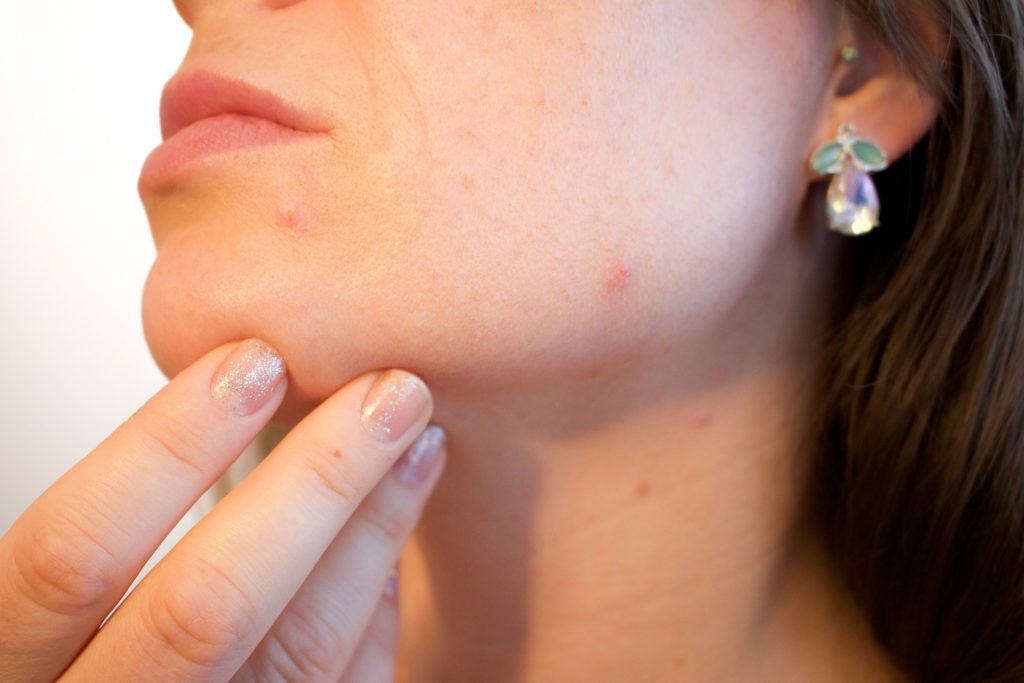Acne
Clear Skin, Renewed Confidence
Acne is a common skin disorder that affects the way pores function, leading to the development of pimples, blackheads, and cysts.
It primarily affects 85% of teenagers, but it can persist into adulthood, impacting individuals of all ages.

Common Symptoms
Acne symptoms can vary, but they typically include:
Pimples: Small, raised bumps filled with pus.
Blackheads: Open comedones that appear dark due to oxidation.
Whiteheads: Closed comedones that remain under the skin’s surface.
Cysts: Painful, deep lumps that can cause scarring.
Acne can lead to acute flare-ups and, in some cases, result in long-term scarring issues, affecting both physical appearance and emotional well-being.
Understanding the Causes
Several factors contribute to the development of acne, including:
Hormonal Changes: Fluctuations in hormones, particularly during puberty, menstruation, or pregnancy, can trigger acne.
Excess Oil Production: Overactive sebaceous glands can lead to clogged pores.
Bacteria: The presence of Propionibacterium acnes bacteria on the skin can exacerbate inflammation.
Diet: Certain foods, particularly those high in sugar and dairy, may contribute to acne for some individuals.
Stress: Increased stress can lead to hormonal changes that trigger acne flare-ups.
Just a few of our FAQs
How can I prevent acne?
Preventative measures include maintaining a consistent skincare routine, using non-comedogenic products, avoiding touching your face, managing stress, and following a balanced diet.
Is acne only a teenage problem?
No, while acne is most common during adolescence, it can affect people of all ages, including adults experiencing hormonal fluctuations or stress.
Will acne scars go away?
While some acne scars may fade over time, they can be permanent. Various treatments, such as laser therapy, chemical peels, and fillers, can help reduce their appearance.
Are there specific foods that can trigger acne?
Certain foods, particularly those high in sugar and dairy, may trigger acne for some individuals. It's best to monitor your diet and see if specific foods worsen your condition.
When should I see a dermatologist for acne?
You should see a dermatologist if over-the-counter treatments are ineffective, if you have severe or persistent acne, or if you're concerned about scarring and the emotional impact of your acne.
Get in Touch
At Skin Health Clinic, we can advise on the specific treatment requirements your acne needs and discuss follow-up strategies to keep it under control or reverse some of the long-term effects it may have had on your skin.
Contact us today to schedule a consultation and take the first step towards clearer skin.